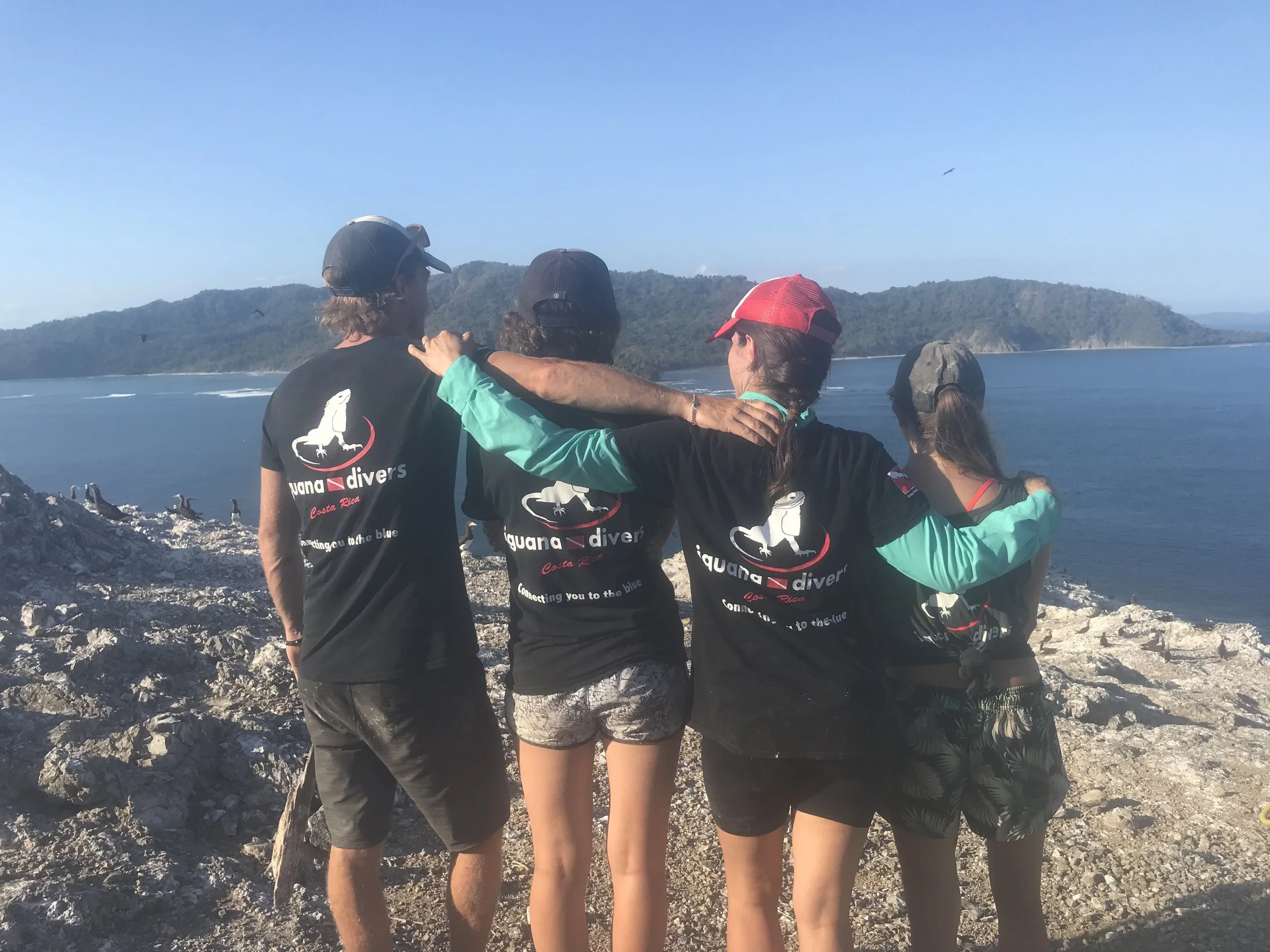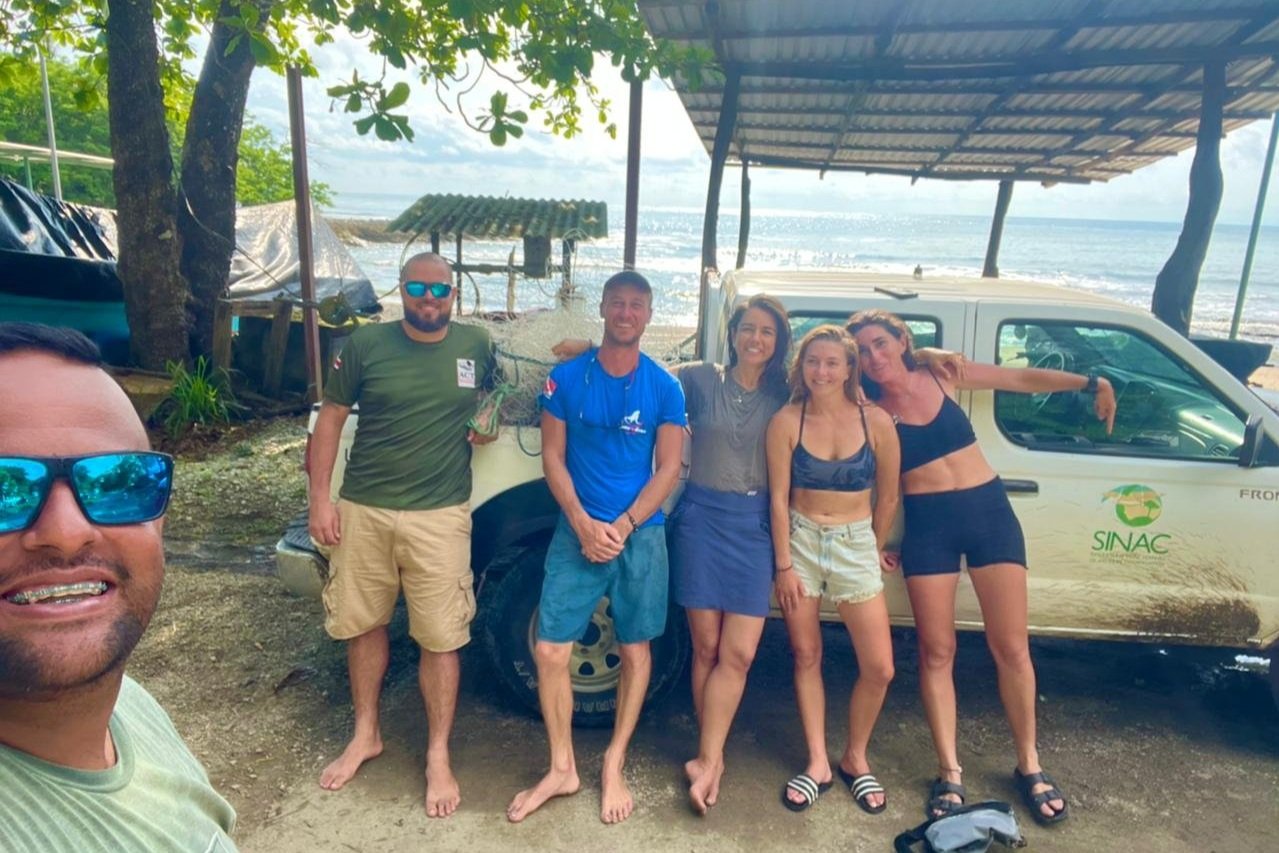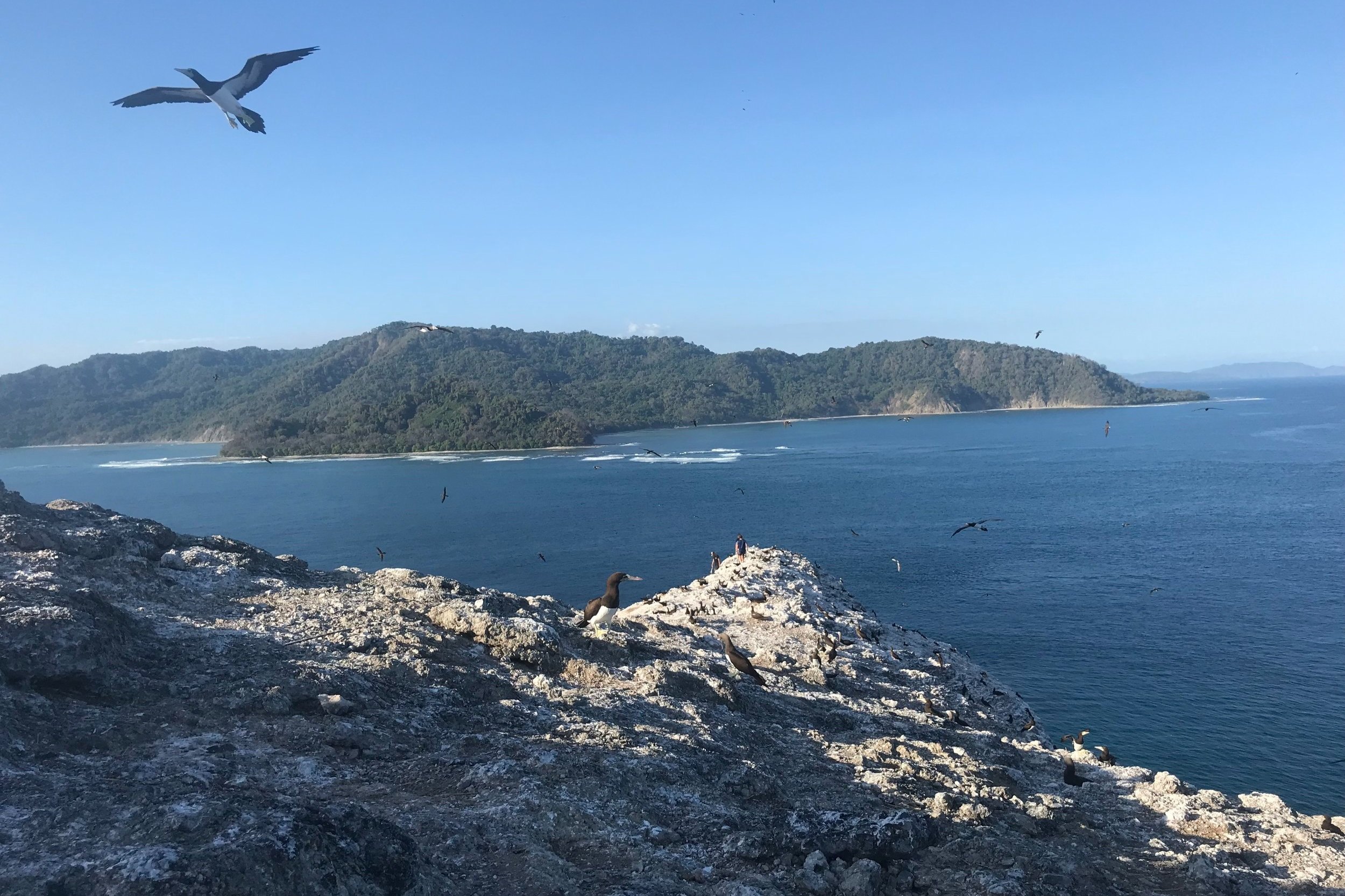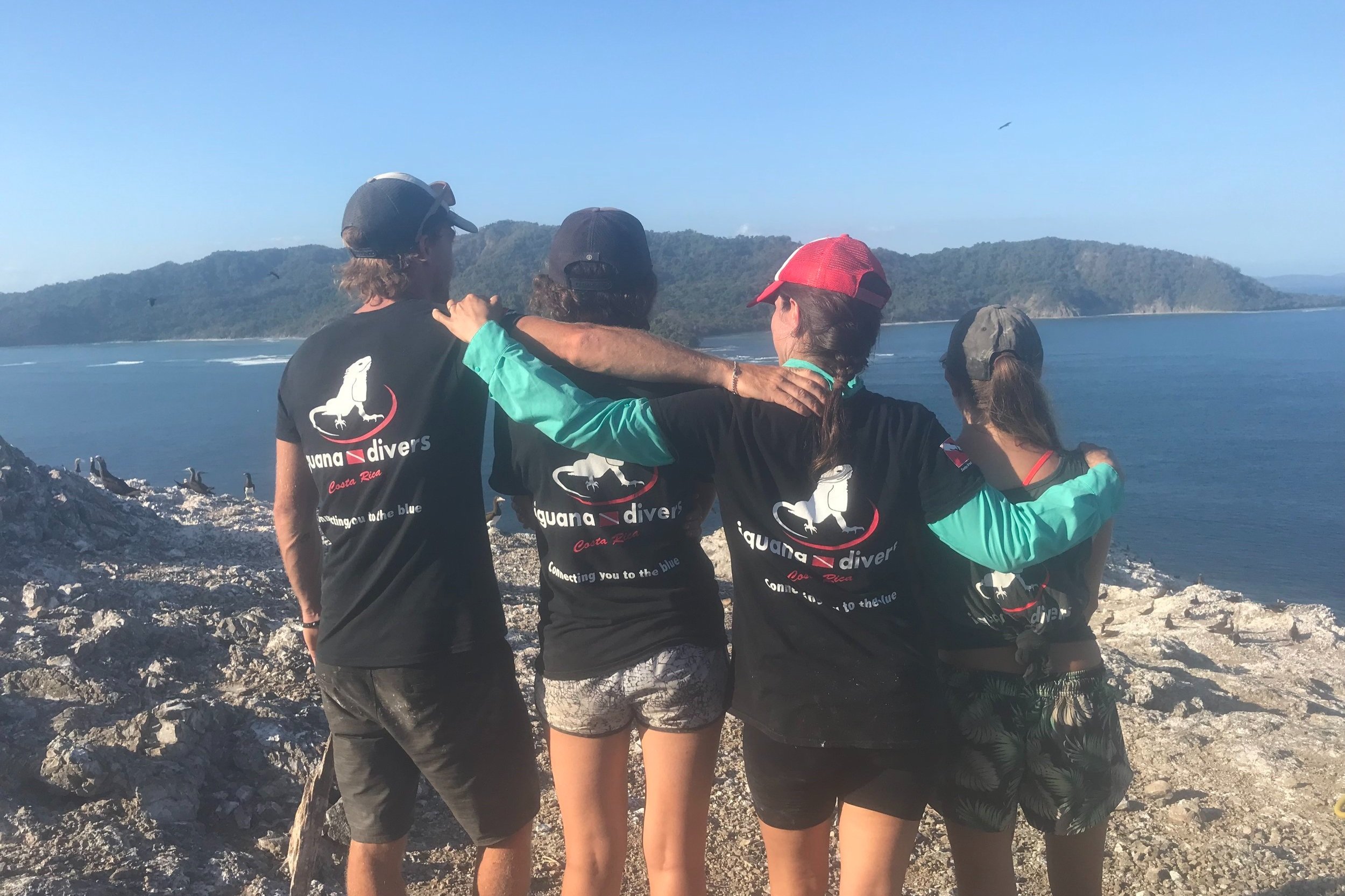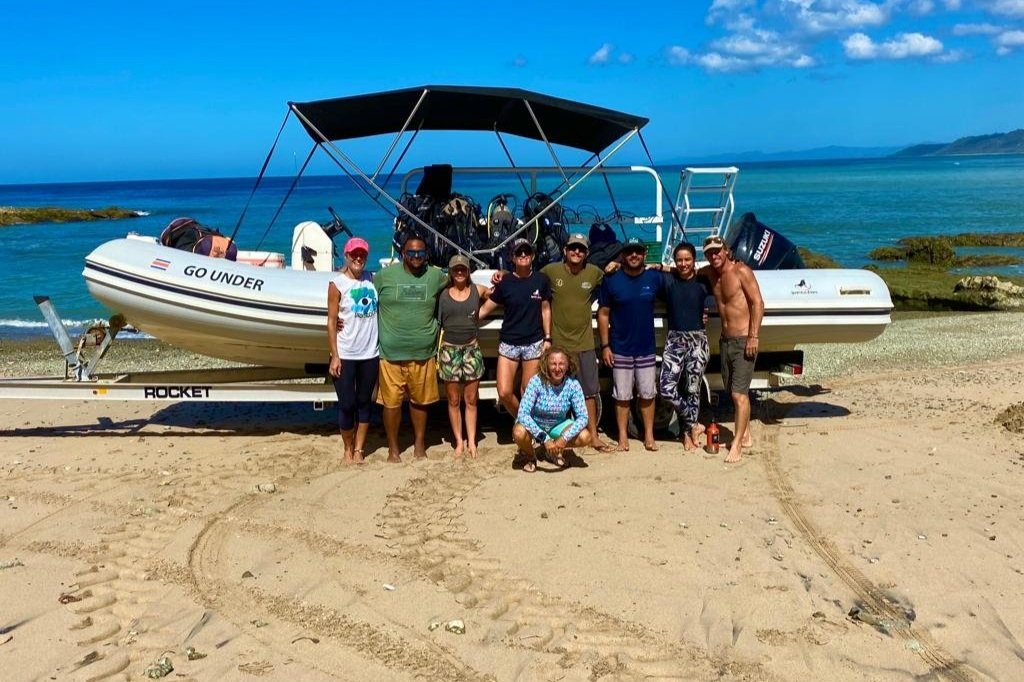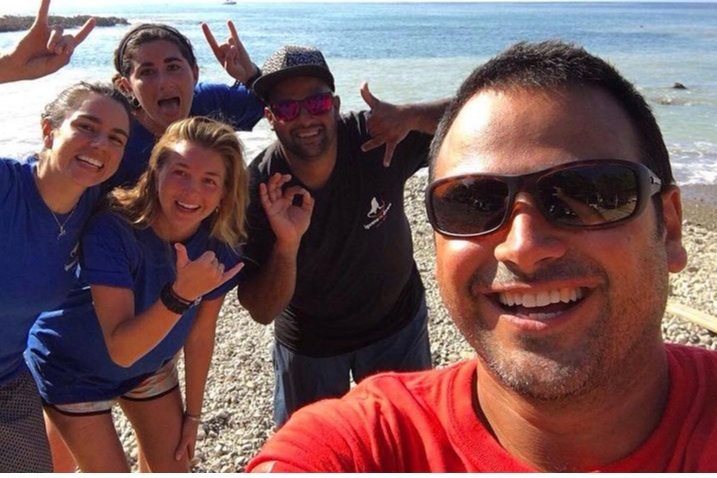Conservation in the community
Cabo Blanco Absolute Nature Reserve
Found on the north Pacific’s Nicoya Peninsula, Reserva Natural Absoluta Cabo Blanco (RNACB) became Costa Rica’s first terrestrial protected area in 1963 (12.7km2 ). In 1982, it was expanded to include 1km of shoreline ocean to create the country’s first MPA (16.68km2 ), with its main objectives to protect marine diversity and providing a refuge to nesting seabirds. Costa Rica’s only site listed as an IUCN 1a strict nature reserve, RNACB is protected under the strictest management category, which does not permit fishing and controls human visitation and activities, enforced by the Sistema Nacional de Áreas de Conservación (SINAC). In 2017, Cabo Blanco marine management area (MMA) was added to the reserve, covering a further 828.18km2. Also managed by SINAC, the MMA aims to: promote conservation and sustainable use of the area, ensure the reproduction of fish and regulate and promote responsible fishing
Iguana Divers work closely with the SINAC park rangers and support their protection of the reserve, including collecting ghost fishing nets. Our instructor Ophelia led a fundraising effort and raised $10,000 to acquire a tractor for RNACB. With this tractor they are able to launch their boat quickly and efficiently which will overall help them to better patrol and protect the reserve.
Beach cleans with Nicoya Peninsula Waterkeeper
Marine plastic pollution is a significant global issue that can negatively affect marine biodiversity and humans. In the past ten years, the annual global production of plastics grew from 250 million tons to 368 million tons, which has contributed to the increasing ubiquity of plastic in the marine environment. Approximately 19–23 million tons of plastic waste enters the marine environment every year, 80% of which is derived from land-based sources and coastal tourism, while 20% is caused by ocean-based sources. Harmful implications of plastics to the marine environment include habitat degradation, entanglement, ingestion, the transportation of invasive species and injury or death to taxa. In addition, because of its lightweight and durable properties, plastics take decades to break down and are resistant to biodegradation.
Iguana divers partner with Cabo Blanco Absolute Nature Reserve and Waterkeepers to organise local beach cleans. Together we rally volunteers to clean different local beaches, the Cabo Blanco Nature Reserve and Isla Cabo Blanco. These are great events where you can enjoy being outdoors, feel the benefits of community spirit and make a difference. Please keep an eye on our social media posts and events to be a part of our next beach clean.

